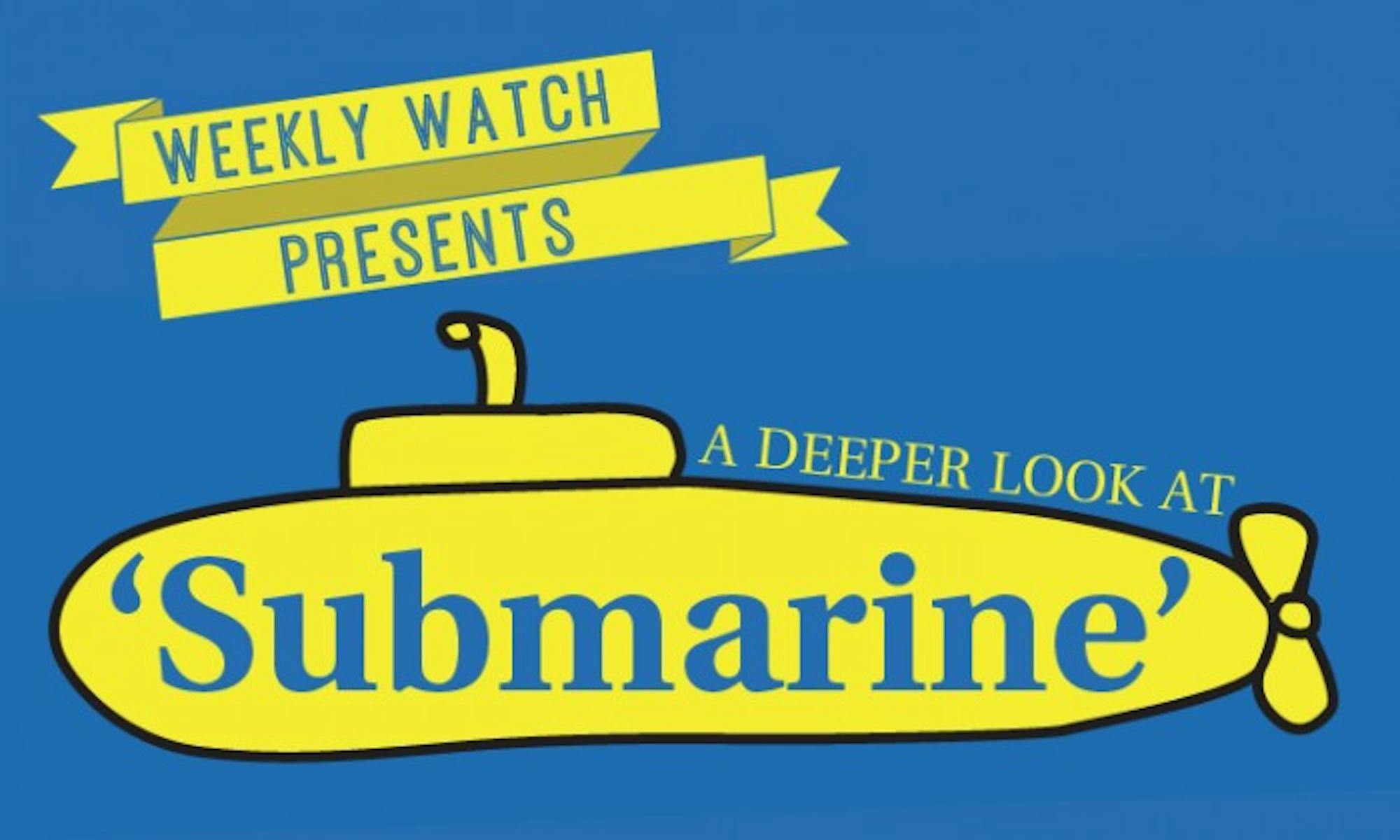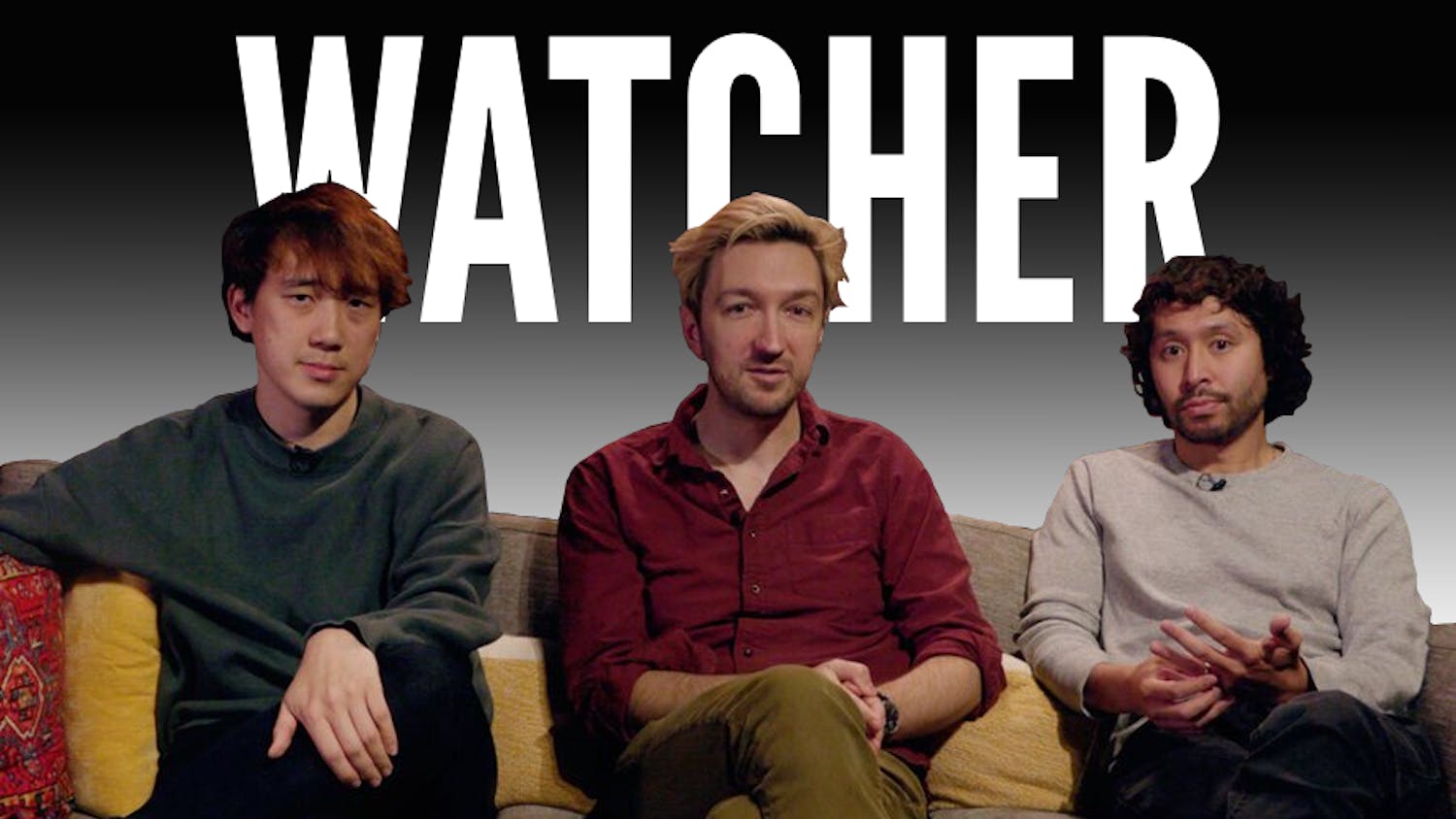
“We’re all traveling under the radar undetected, and no one can do a thing about it,” he states.
“Submarine” flew under the radar itself, however, now streaming on Netflix, the film’s character begs to be viewed and, furthermore, interpreted. You will submerge yourself in Tate’s world, indulging in his narration and bitter humor.
Tate wishes there was a film crew following his every move and acts in an accordingly melodramatic, self-reflective way.
“I don’t what I am yet. I’ve tried smoking a pipe, flipping coins and listening exclusively to French crooners," Tate confesses.
"Other times I’ll go to the beach and stare at the sea as though I’m in a documentary as a prominent thinker, who’s struggled with unspeakable loss. I even went through a brief hat phase. Nothing stuck."
Tate has a crush on his classmate, Jordana Bevan. He describes her “sporadic bouts of eczema” to be her only flaw, “other than that she has many qualities. She’s also a girl, to be seen with her could improve my street cred, which though high, could be higher.”
Jordana takes Polaroids of them kissing to make her ex-boyfriend jealous, and the two start dating. They’re relationship involves arson-filled dates, sitting in an abandoned bathtub together talking and Jordana singeing Tate’s leg hairs. You will fall for the eclectic coupling, cherishing Tate’s try-hard attitude and Jordana’s witty jibes.
For example, Tate nervously lets Jordana know they can have the house to themselves, saying “my parents go to the cinema on Thursday, so what I’m saying is it’s empty. The house. The house is empty on Thursday evening. It’s empty, you know. It’s an empty house.”
After writing down the reasons Jordana should come over, per her demand, Jordana tells him she has one more serious question, “Will the house be empty?” sarcastically poking at Tate's anxiety-ridden words.
Ayoade’s stylistic choices emulate Wes Anderson: he opens with a scanning shot, frequently uses slow motion, centered shots and features montages throughout.
He begins one of these montages as Tate narrates his daydreaming in class, “I find that the only way to get through life is to picture myself in a completely disconnected reality. I often imagine how people would react to my death.” The montage features clips of grandiose school announcements, news reports and bawling girls all reacting to his untimely passing.
Tate’s dramatics lend themselves to the film, influencing the style of cinematography. The film is staged in four parts: a prologue, Part 1 – "Jordana Bevan," Part 2 – "Graham Purvis" (named after Tate’s mother’s old-flame who moves in next door and is, to his mother’s approval, trying to reignite the relationship) and Part 3 – "Show Down." This style of narration is very similar to the staged theatrics in Anderson’s “Rushmore.”
Ayoade used a technique I had never seen before to sensationalize certain scenes, such as Tate accidentally pushing an overweight bullied student into a pond or Tate and Jordana’s first “real” kiss. He used slow motion, but slowed the feature of the shot to a near pause. It emphasized the drama of the events and reflected how long the moments felt to Tate. It was a jarring, unique stylistic choice that proves Ayoade to be an inventive, impressive director.
The movie was supplemented with a soundtrack by Alex Turner, lead singer of the Arctic Monkeys, which added to the melancholy tone of the film.
Be sure to pop open your laptop, launch Netflix and follow Tate’s requests in the movie's own opening message: “Submarine is an important film. Watch it with respect.”













